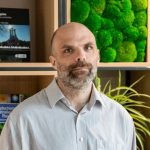
Ben Deighton
President
Ben Deighton is the Managing Editor of SciDev.Net, the world’s biggest news service covering science in a development context. Ben is responsible for SciDev.Net’s strategic direction and for overseeing SciDev.Net content, ensuring its editorial independence and the quality of articles and multimedia products.
Ben has been a journalist for over 20 years and worked as a correspondent for Reuters in London and Brussels covering tech startups and biotechnology companies. Ben was founding editor of Horizon magazine, a Brussels-based publication looking at European science. Ben started out as a journalist covering crime and transport for a local newspaper, and was also editor of a magazine focussed on the global veterinary medicines sector.
Ben is also a board member of the Association of British Science Writers.
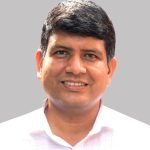
Chhatra Karki
Vice President
Chhatra Karki is a science journalist and editor based in Kathmandu, Nepal. He holds the role of Program Director at the Nepal Forum of Science Journalists (NFSJ) and boasts a wealth of experience spanning over two decades in print, multimedia, and online journalism. Chhatra’s reporting encompasses a wide range of topics, including science, health, climate change, environment, technology, neuroscience and current events, which he covers for both national and international media outlets.
Notably, Chhatra has previously held the position of Bureau Chief at Nagarik Daily Newspaper and has served as the Editor of NepalNews, which is Nepal’s first online news portal. Presently, he contributes as a Nepal Writer for gavi.org, where his articles explore subjects such as environmental health, public health, scientific research, and vaccines.
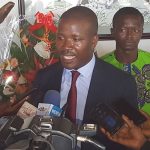
Joseph MBENG BOUM
Vice-President
Joseph MBENG BOUM has nearly 13 years of experience in science journalism. In August 2023, he was elected to the Board of Directors of the World Federation of Science Journalists for a renewable two-year term. Since 2022, he has been Coordinator of the Science Journalism Forum for French-speaking Africa. Elected National President of the Association of Science Journalists and Communicators for Health Promotion (AJC-PROSANTE) in 2020, he was re-elected on October 27, 2023, for a 03-year term. Member of the Réseau des Journalistes Scientifiques d’Afrique Francophone (RJSAF) and Member of the Science Journalists Network of Cameroon (SCILIFE). Since 2016, he has been CEO and Publication Director of ECHOS SANTE Daily (African daily for health, environmental and sustainable development news). October 2019 to date: Publishing Director of Journal Afrik Environnement – www.afrikenvironnement.info
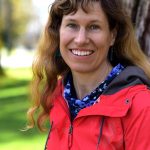
Lesley Evans Ogden
Secretary
Lesley Evans Ogden is a multimedia science journalist living and working on the unceded and traditional territories of the Coast Salish peoples, near Vancouver Canada. She pursued journalism after a PhD and postdoctoral research in wildlife ecology. Passionate about bringing the complexity, wonder, and nuance of science to diverse audiences, she is drawn to stories about nature, environment, wildlife, health, and the intersection of science and human rights. Her bylines appear internationally. Lesley is committed to building bridges of trust between science and journalism, enthusiastically participating in communications and media training for scientists, and supporting transparency, accountability and educational opportunities at WFSJ. She previously served on the board of the Science Writers and Communicators of Canada and is a member of the Canadian Association of Journalists and National Association of Science Writers (US).
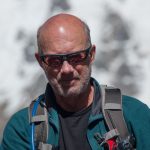
Jean-Marc Fleury
Treasurer
Journalist
View Alumni Here